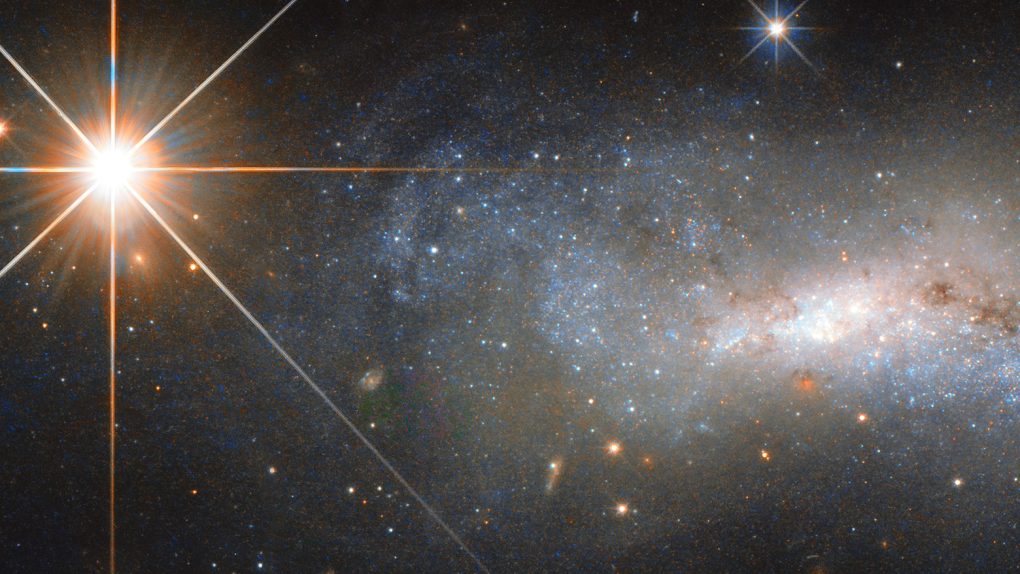Oftentimes astronomers focus on distant galaxies in an effort to better understand the layout of the universe, and perhaps even tell us something about how our own galaxy has evolved over time. A large galaxy lurking far away in the cosmos recently caught the eye of scientists for an entirely different reason: It sent a signal that we were able to detect here on Earth.
The galaxy, which carries the complex scientific label DES J214425.25-405400.81, is a whopping 4 billion light-years away, but it’s been pegged as the source of a single, non-repeating fast radio burst (FRB) that was heard loud and clear by an array of radar dishes in Australia.
Upon its detection, researchers began investigating the possible source of the FRB, managing to not only find the galaxy that it was beamed from, but narrowing down the source to a rather specific spot within the galaxy itself.
In a new research paper, the scientists who hunted down the source of the radio signal reveal that the signal originated some 13,000 light-years from the center of the galaxy. Other than its location and the fact that it hasn’t repeated like some other FRBs tend to, the researchers know very little about what caused the signal to ring out across the universe, deepening the mystery behind these bizarre transmissions.
Hearing that we’ve detected an intergalactic radio signal might make your mind wander a bit, but before you go dreaming of aliens attempting to hail other civilizations you should know that scientists are taking a much more measured approach to things.
It’s likely, researchers say, that the signals are being produced by one of several possible stellar phenomena. The collapse of stars or even black holes tearing stars apart could possibly explain these radio blasts, but right now there’s no definitive answer. Whatever it is, it’s probably not aliens.








